NEWS Digitalisation is often presented as the obvious solution to the climate crisis facing humanity, but we talk less about the challenges and negative consequences that digitalisation brings. During a panel discussion in Humlab, researchers from different subjects and faculties gathered to discuss the climate crisis and the digital – connections, causes and complications.
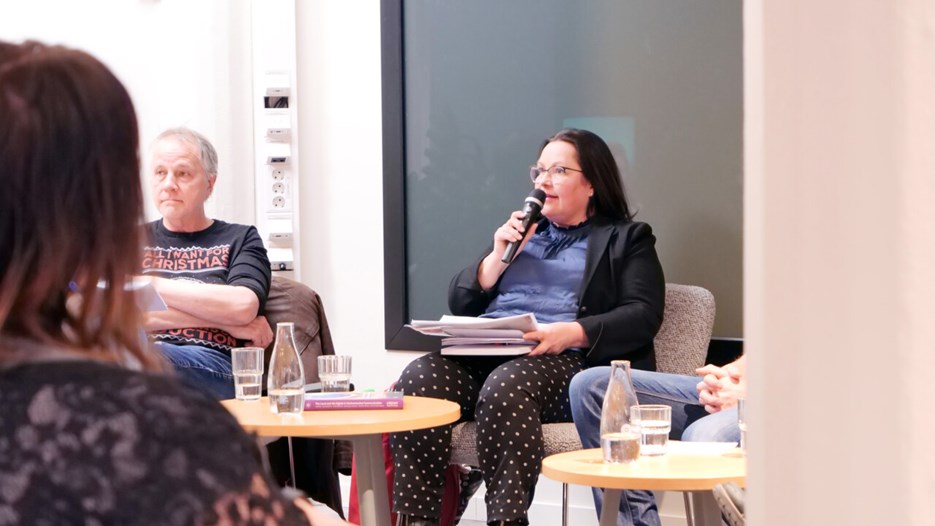
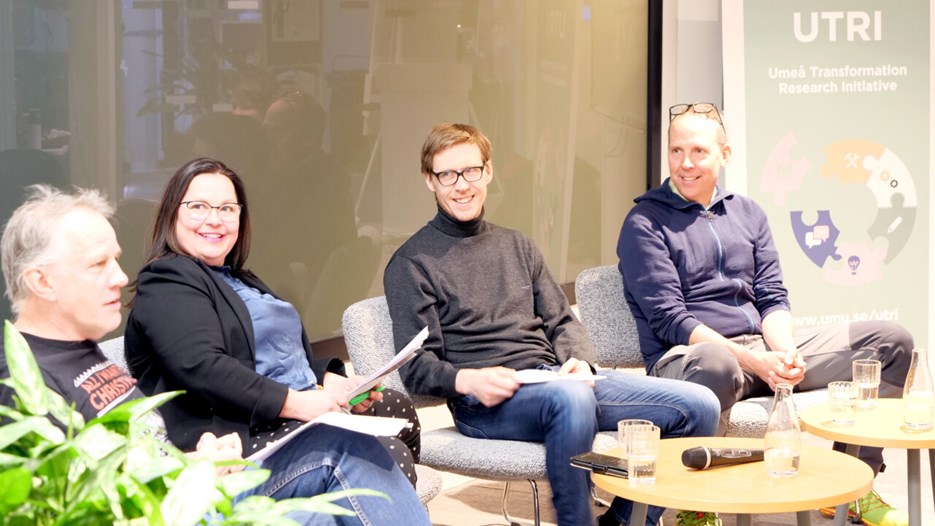
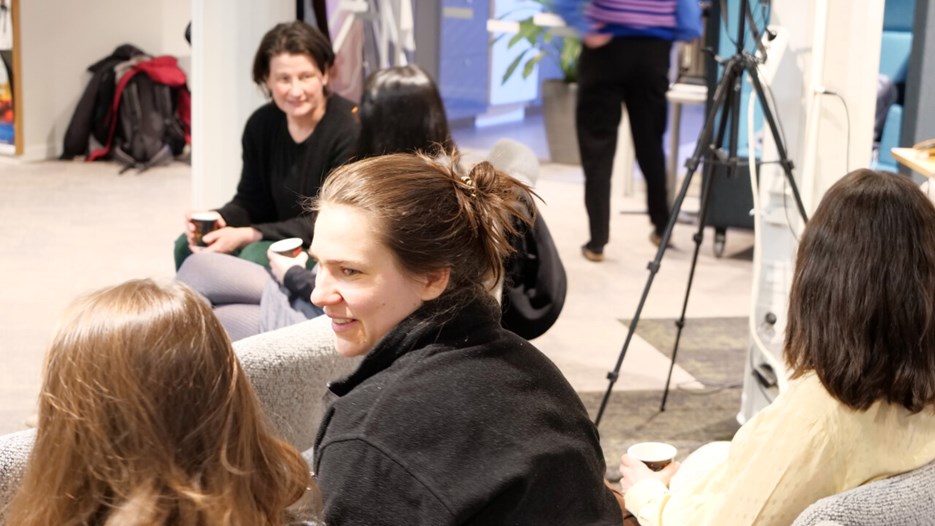
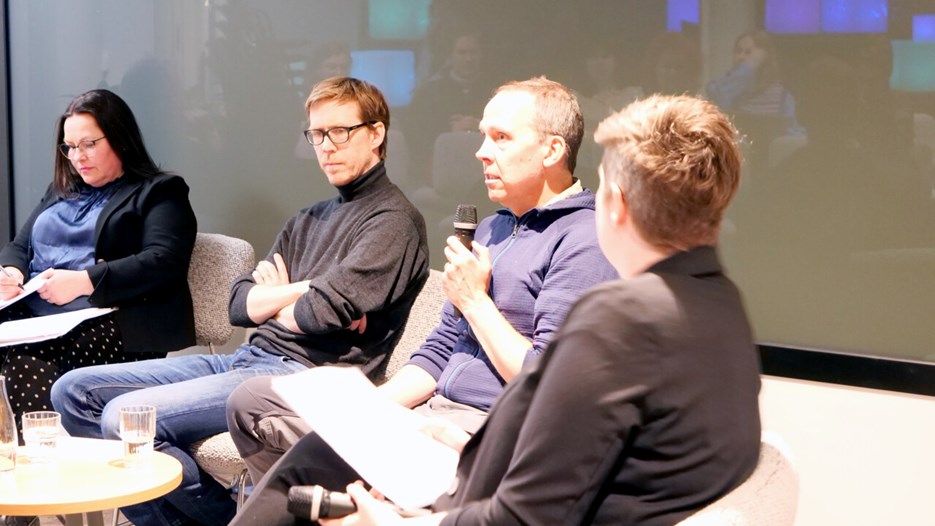
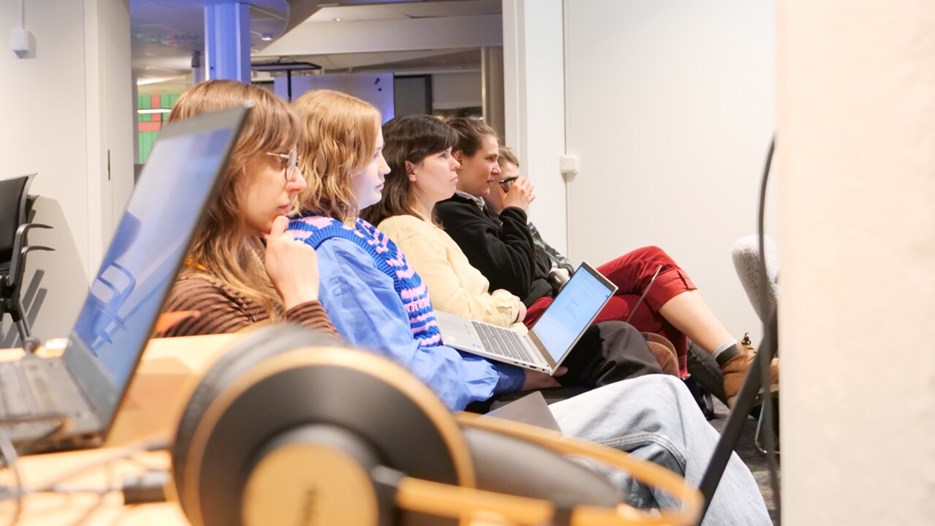
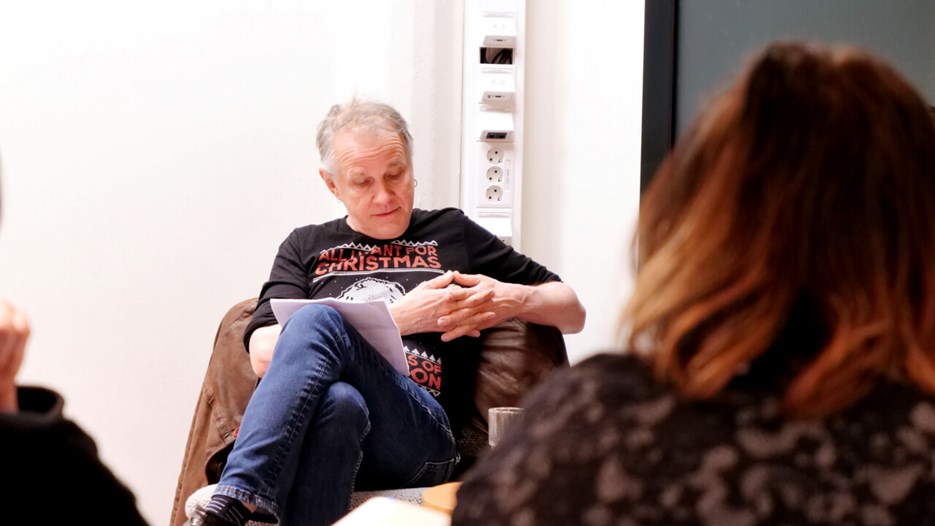
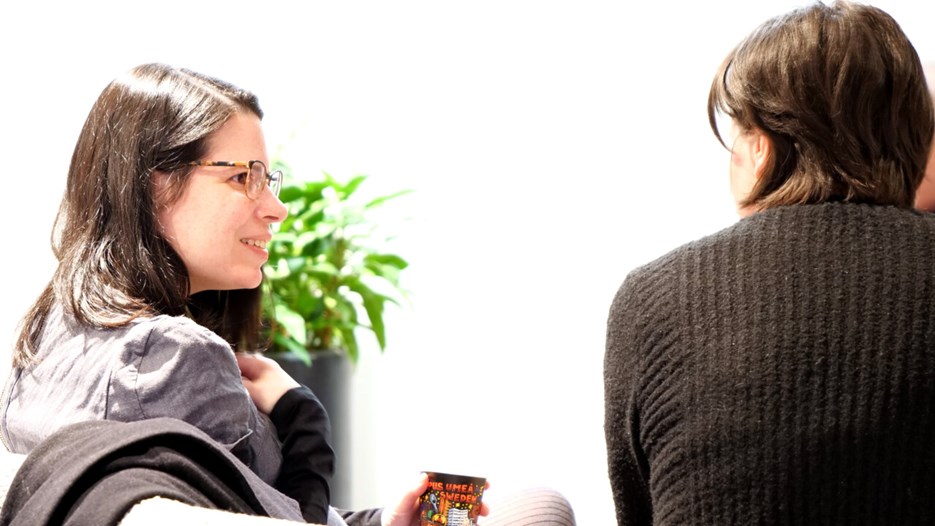
– The idea to organise this symposium was born after a session on transformations in relation to digitalization and environmental challenges during Humlab's 20th anniversary conference in 2021. Since then, a so-called green industrialization in northern Sweden has, among other things, been presented as an innovative solution to the climate crisis. At the same time, other institutions in the world are demanding that society gains more knowledge about the negative consequences of digitalization, says moderator Evelina Liliequist, postdoctoral researcher at the Centre for Regional Science at Umeå University.
A so-called green industrialisation in northern Sweden has been presented as an innovative solution to the climate crisis. At the same time, other institutions in the world demand that society gains more knowledge about the negative consequences of digitalisation.
Keith Larson, director of Arcum, research how arctic and alpine species' life-history adaptations have been shaped by the environment; how the timing of life history events is affected by climate and environmental changes.
– A fundamental mistake we make in Sweden is that we do not consider that we need this place in the future. Scandinavia is the most developed northern region in the world – this is where people will live. We must start seeing this as our lifeboat in the north and we must create conditions to which we can adapt. We have always had climate change, but it is the rate of change that matters.
Annika Egan Sjölander, professor of media and communication science, is coordinator for Umeå Transformation Research Initiative (UTRI) and leads a research programme on the role of communication in creating more sustainable societies in the Anthropocene.
– There is a lack in society today in terms of how divided the understanding is about where we are going and about how digitalisation will solve the challenges we are facing. We need to gather both digital, and climate and sustainability skills to better understand how these interact. Locally as well as globally. We do this by using our experience and looking at history. In addition, democratic institutions play a decisive role here, as does journalism.
Christoffer Boman, associate professor at the Department of Applied Physics and Electronics, research how to develop new knowledge in energy systems that will benefit society and industry in the strive to become more sustainable.
– There are both opportunities and challenges with AI, depending on how we look at it. It is clear that digitalisation affects sustainability from all perspectives – not just linked to the climate. Society has so far worked linearly, but economic systems must promote circularity. From the side of academia, we must become better at communicating science and being visible outside the university.
Toby Miller, professor at Complutense de Madrid, does research in cultural studies and media studies. He has a long-standing commitment to sustainability issues related to media and communication science.
– The prevailing notion is that we as consumers must solve the situation, but individual decisions do not change the situation of children in the Global South who work so that we in industrialized countries will have a cell phone, or recycle e-waste at the end of those phones’ lifecycle. Nor does it address the fact that annual e-waste now weighs more than the Great Wall of China. Society must demand that the companies behind the phone brands be clear about their role and what they are doing to change the current situation.